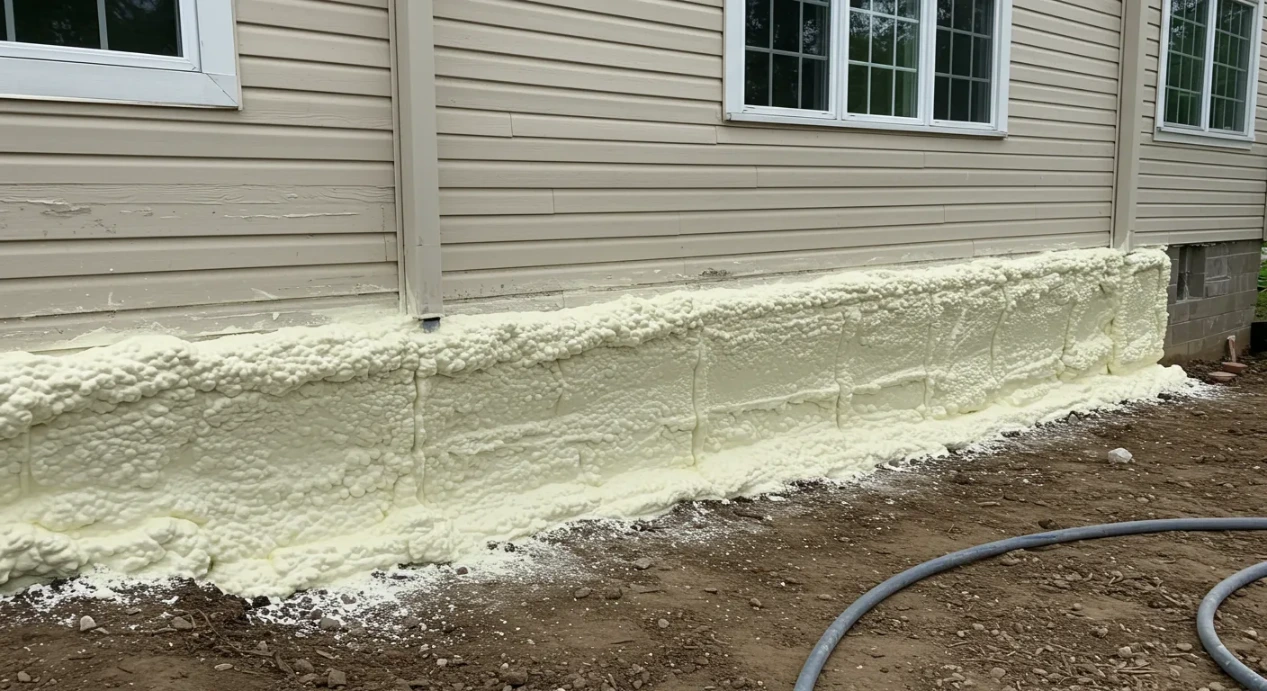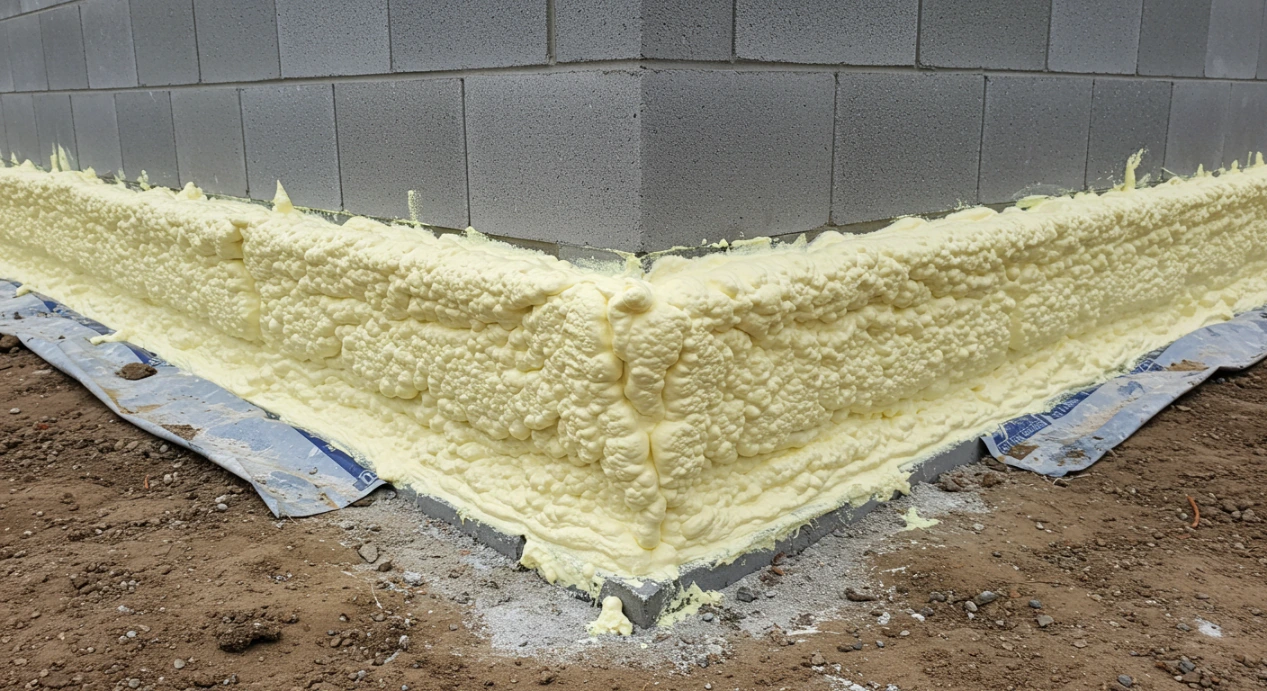
Picture your home during winter: the heater running, yet the floors stay cold and drafts creep in. In a hot, humid summer, indoor moisture seeps in from below, pushing your HVAC harder and raising energy bills. That's where a foundation insulation contractor in Nashville, AR can make all the difference. By sealing and insulating the base of your home with high-performance closed cell spray foam, LMC Insulation helps create a more comfortable, healthier, and energy-efficient space for families across Nashville, AR and surrounding areas.
Closed cell spray foam provides exceptional air and moisture control at the foundation level. Its rigid structure adds strength to your building envelope, resists water infiltration, and delivers one of the highest R-values available. Applied directly to basement perimeters, foundation walls, and slab edges, this material forms a continuous barrier that reduces energy loss and improves air quality.
By reducing heat transfer and eliminating drafts from below, foundation insulation enhances indoor comfort all year. It also limits condensation that can lead to mold and mildew issues, helping protect the long-term health of your home.
Closed cell spray foam is a smart choice for both residential and commercial foundation insulation. It adheres firmly to concrete and masonry, making it ideal for direct application to structural elements. Whether building new or retrofitting an existing property, it delivers durable performance that holds up over time.
LMC Insulation applies spray foam to the following areas:
Every job starts with a detailed site inspection. LMC Insulation evaluates conditions, identifies vulnerable points, and recommends an insulation strategy using closed cell spray foam. After surface prep, technicians apply the foam in layers, ensuring even coverage and thickness.
Once cured, the foam creates a hard, seamless shell that seals out air, water, and pests. This method is fast, efficient, and minimizes disruption, making it an effective upgrade for both new construction and older buildings.
Things to Consider Before Installation
Insulation Type | R-Value per Inch | Water Resistance | Structural Support |
Closed Cell Spray Foam | 6.5 - 7 | High | High |
Fiberglass | 2.9 - 3.8 | Low | None |
Cellulose | 3.2 - 3.8 | Moderate | None |

R-value measures insulation's resistance to heat flow. The higher the number, the better it insulates. Foundation areas require high R-values due to constant exposure to ground temperatures and moisture. Closed cell spray foam delivers R-values between 6.5 and 7 per inch—outperforming traditional materials like fiberglass or cellulose.
Using the best foundation insulation means better comfort, less wear on HVAC systems, and improved energy ratings. This is especially important for commercial foundation insulation projects, where code compliance and long-term cost control are top priorities.
Industry fact: According to the U.S. Department of Energy, homeowners can save up to 15% on heating and cooling by air sealing and insulating the foundation.
Homes in Nashville, AR face a mix of cold winters and humid summers. Foundation insulation helps manage both. Cold air stays out in the winter, and moisture stays controlled during the summer months. Spray foam insulation protects against soil moisture that can damage foundation materials over time.
With Nashville’s older housing stock, retrofitting closed cell spray foam at the foundation can prevent common issues like sagging floors, high energy bills, and mold near the base of the home. Local building practices and climate conditions make this a highly recommended upgrade.
Call LMC Insulation at (479) 322-4197 to schedule your on-site consultation. Get a solution that protects your home from the ground up with high-performance foundation insulation services.
Closed cell spray foam offers the highest R-value and moisture resistance, making it the top choice.
Most residential projects can be completed in one to two days, depending on size and prep needs.
Yes. Closed cell spray foam seals out water vapor and reduces condensation.
Yes. It can be installed during renovations or as part of an energy upgrade.
Yes. It improves comfort, reduces energy bills, and helps prevent long-term structural damage.